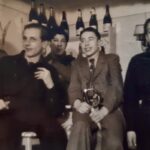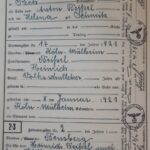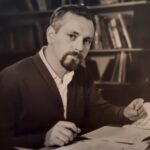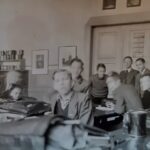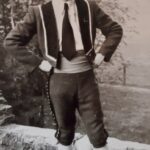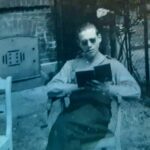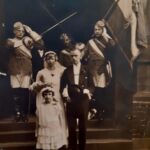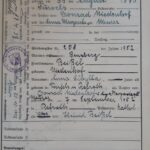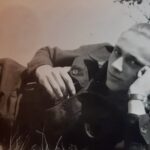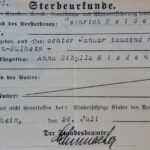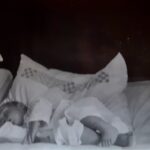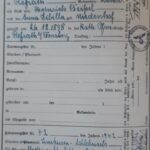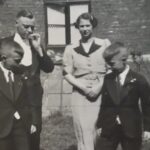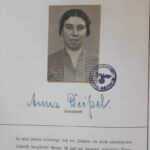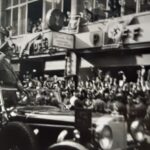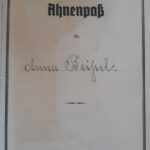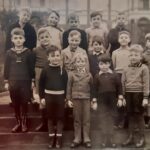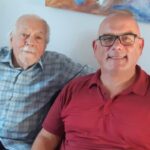Henry Beissel was born April 12, 1929 in Germany. It was a period where Germany was still struggling to recover from the punitive terms of the Treaty of Versailles, which were at the time of Henry’s birth coupled with the impacts of the Great Depression. Henry grew up in Nippes, near Cologne; both parents were musicians, and Henry remembers some difficult times when he was young. He also remembers being raised in the Catholic faith, and that his constant questions upset the nuns. Most of Henry’s childhood also was spent against the backdrop of Hitler’s emerging Third Reich. That meant Brown Shirts in the streets, as well as the beginnings of political persecution, though the young Henry was less aware of those realities. He did join the Hitler Youth, and Henry remembers chafing against the regulations and rules that were being imposed upon his free spirit. The war began in 1939, just as Henry was beginning high school; one one hand the world opened to him as he began his studies of painting and Latin, but on the other hand the war intensified after 1940 and Henry remembers well the bombing of Cologne. May 1942 would prove to be the turning point for Henry, when a 1000 bomber raid devastated the city. Not long after he was evacuated to Gummersbach, but even there Henry remembers he was not safe, as one time a bomb fell in the middle of his schoolyard. Henry’s father had been conscripted earlier, and he became a quartermaster; during this time, he was reported missing in action, though the family later found out that he had been taken as a POW. In the fall of 1944 Henry was drafted, but a foot injury kept him out of the army at that time. Henry’s day to report to the German army came on April 12, 1945, when he was 16 – and when the war was in its final few weeks. He went into hiding, and he was fortunate that the family he was staying with worked to shelter him. He evaded the Nazi authorities, and in short order the Americans showed up. Henry was initially adrift: he didn’t know what had become of his parents, and he did not know where to turn. An American officer gave him work as an interpreter though, an event that would change Henry’s life and direction. He worked for both the British and the Americans in upcoming years; he also confronted his sense of Germanness as he became aware of the events of the Holocaust, something that shook Henry to his core. The period after the war saw some uncertainty for Henry, but he did find himself and return to his education, first in Germany and then England. By this time he had become interested in philosophy and poetry, and these new interests accompanied him to Canada in 1951, where he built an acclaimed career for himself as a dramatist and poet and humanist. Henry Beissel was interviewed by Scott Masters at his home in Ottawa in August 2023.
Videos
Click next video below to keep watching
